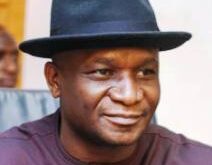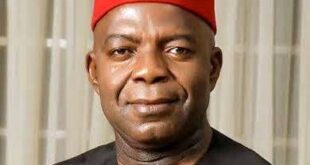By Paul Williams, Abuja
The Senate commenced debate Wednesday on the general principles of the 2020 Appropriation Bill, ahead of passing it for second reading.
One critical issue that came to the fore during the debate was the 7.5% increase in value added tax (VAT) and the huge amount appropriated for debt services.
The first to raise the alarm was the Senate minority leader, Senator Enyinnaya Abaribe, who made contributions after the Senate majority leader, Senator Yahaya Abdullahai, kicked off the debate on the N10.3 trillion appropriation bill for the year 2020.

Senator Abaribe described the document as a budget of taxation, adding that the budget estimates are not sustainable.
But some lawmakers in their contributions said the required economic growth of the country can be achieved if the budget is properly implemented.
In his contribution, the senator representing Benue North East, Gabriel Suswan, pointed out that the budget projections could lead Nigeria into more borrowing, and urged the Senate to take critical view of the budget and fine turn it for the meaningful development of the country.
However, as the debate entered the second day on Thursday, Senator Emmanuel Bwacha (Taraba South), who kicked off the debate, reminded the Senate to have reviewed the 2019 budget implementation as a guide to how 2020 budget will be directed.
Senator Bwacha identified that the menial budget for agriculture signify that the government is not actually ready for economic diversification, stressing that agriculture is one main economy that will boost the nation’s economy to greater height and capable of absorbing the unemployment problem in the country.
The senator also called for increase in the security budget in view of the present high rate of insecurity in the country, and urged the Senate to workout equitable budget for the country.
Other lawmakers who contributed to the debate expressed dissatisfaction over the high rate of taxation introduced in the budget, stressing that it will spell more economic hardship on Nigerians.
They also pointed out that budget allocation to education and health are not adequate enough for a realistic goal in these essential sectors for the nation.
Our Abuja correspondent reports that other senators on the opposite side said the budget is realistic and aim at transforming the economy for meaningful development of the nation, if properly implemented.
 PH Mundial – Port Harcourt Online Newspaper News Across The Region
PH Mundial – Port Harcourt Online Newspaper News Across The Region





